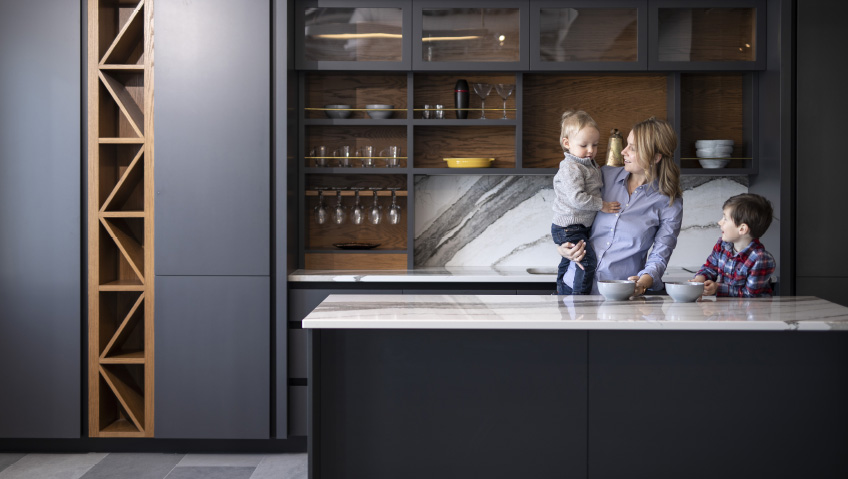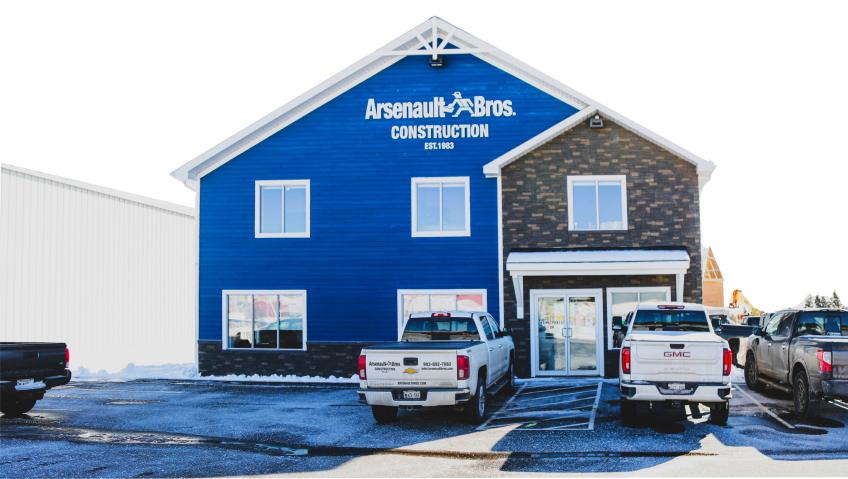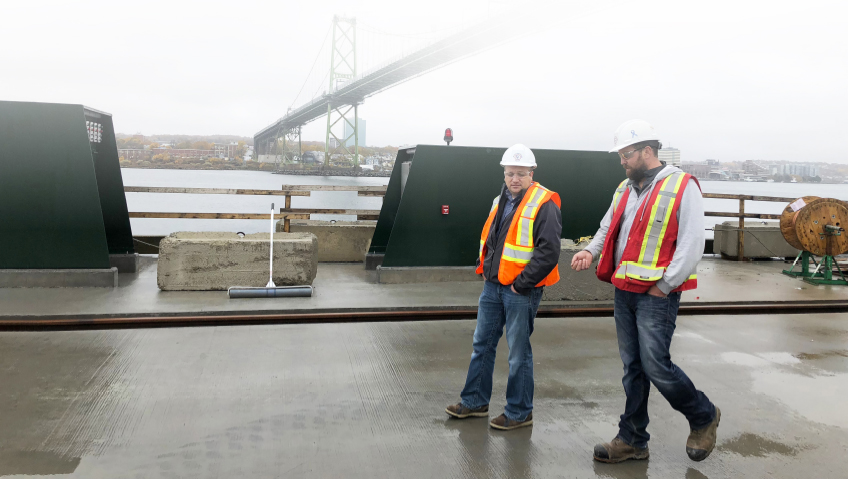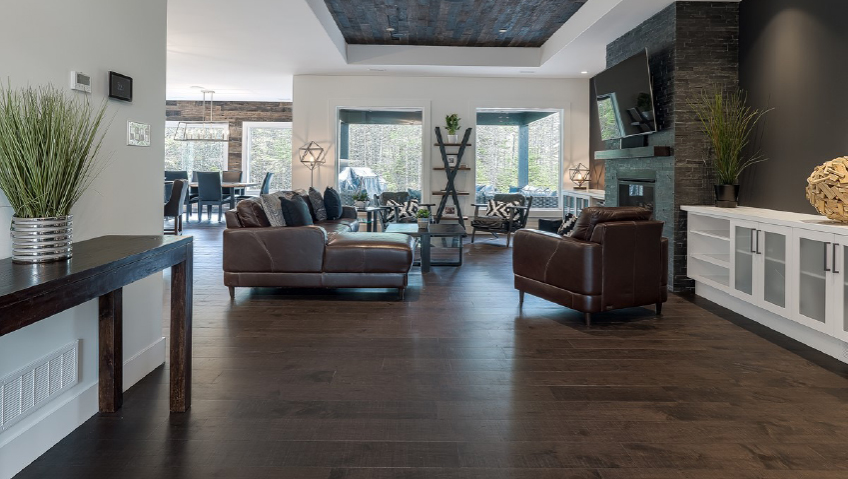Vesta Marble and Granite is a Canadian installer and manufacturer specializing in stone fabrication, templating, and installation. The company got its start in Ottawa in 1985, when President and CEO Nat Polito saw a gap in the existing stone industry. The sector, he determined, was lacking in alternative solutions to its more common problems. So Polito decided to start his own business to address this need.
In its early days, Vesta’s focus was primarily on marble and at the time, a lot of the technology to work with the material simply didn’t exist. Polito remembers that the biggest tool in the 1980s was a bridge-mounted saw blade, with much of the shaping work being achieved with hand tools like grinders. At one time, the skill level required to work in marble was quite high, as one had to know how to shape its edges into details as well as how to perform multiple different functions for the desired result.
A big boon to the marble industry was the introduction of its use as a countertop material, a use which Polito describes as “integral to the industry.” When granite and marble were introduced as kitchen-ready surfaces, it allowed the entire industry (as well as Vesta itself) to grow and eventually introduce new technology, including lasers for on-site measuring as well as digitized processes. Polito also recalls the introduction of generic stone (i.e. quartz) and how its marketing under various brands pushed the sector forward into more lucrative times.
Today, Vesta is a premier company in its field with a range of slabs and solutions for its customer base. This status has been boosted in recent years thanks to the backing of an important industry figure. Polito credits the NSI (Natural Stone Institute) as both the governing body for stone usage in North America and as the standard-bearer for the production and installation of stone products. Vesta, also a member of the Marble Institute of America, recently received its NSI accreditation after succeeding in a vigorous vetting process and is now one of only four companies in Canada to achieve it. Vesta is proud to have met all requirements, as it means the quality of its work and its understanding of the industry meets and exceeds NSI standards.
Along with this accreditation, the Vesta Design Centre showroom has become a recognizable and important part of the retail side of the business. The centre offers many stone and cabinet products as well as tile, plumbing, and custom-made cabinetry products for bathroom and kitchen use. Vesta strives to meet the diverse needs of its customers in the retail space; it is not interested in competing in the generic cabinet business, necessarily, but is an option for the discerning customer.
Polito explains that typically, in the building and construction industries, workers are familiar with Vesta’s product but budget is a consistent concern. He explains that, while marble and its ilk may not be the cheapest point of entry, these materials do become the most economical solutions within the first five years of application, with the need for maintenance and replacement also being far lower than the competition.
Thanks to the computerization of the sector, Vesta can produce at a high volume to meet the needs of developers and general contractors. Polito praises the current state of marble technology, saying, “If we didn’t have this equipment, we’d never be able to find the labour force and supplies in the large amounts we have them in.”
While builders are concerned with both cost and the ability of materials to deliver a final product, Vesta has been able to achieve both ends by building itself to a certain volume and is now able to meet the needs of any client. When it comes to residential customers, that market segment may be looking for higher-end materials and may have a bit more knowledge of the product itself [than builders]. “You have to understand the different needs of different customers… to communicate what we offer and to be able to listen and know what they want and guide them to the right choices.” Polito feels it is the responsibility of Vesta to inform and guide clients en route to their goals.
Polito notes that it is a challenge for many employers today to meet the human resources realities of a post-COVID world. “[Since] a lot of people are experiencing challenges of operating in this new reality,” he explains, “We often have to adjust to the needs of the people we can attract.” Vesta creates a positive work environment for its employees and continues to adjust as much as possible to the changing labour landscape. Polito admits that, in today’s work economy, some of the physical positions of the company are tougher to fill, as one needs a strong desire to work as well as a strong back for the intensive labour.
To further encourage new workers, Vesta is looking to help its employees forge a path toward skill development, whether it be learning a trade or becoming experienced in vehicle operation, so that they can reap the financial and career benefits. As high turnover continues to be a concern for many employers today, Vesta is investing a lot of effort into meeting the needs of today’s—and tomorrow’s—workforce.
Having gone through cycles of boom and dip in his 35+ years in business, Polito believes firmly that the industry has an inherently cyclical nature, and any dips will never be as extreme as people fear. Although Vesta is currently working through a five-year supply shortage, it is ably adjusting its building schedule over the next couple of years, looking at the potential for more multi-unit homes to be built to meet North America’s current housing needs. Another way that Vesta will be building capacity will be in investing further in technology; as Polito and company want to facilitate growth and remain a vibrant organization with engaged workers, technology will be needed to fill in current gaps.
Through all the challenges the industry is facing, Vesta and its workers remain optimistic; as Polito says, when it comes to attitudes during industry-wide dips in business, “Doom and gloom sell better than optimism,” but the latter brings companies through the hard times reliably.
Polito is confident that, barring any unforeseen impacts in cost or otherwise, Vesta’s portfolio will take it well into 2023 and beyond, as it looks to find and maintain the workforce to meet these commitments. Polito adds that the company will be looking into where both its product and construction in general are heading. As the housing market looks to be experiencing a lull, this is typically a time when the renovation market sees growth. Vesta will be looking to see where the market is going and leveraging itself accordingly, such as propagating its Vesta Design Centre (an idea inspired by the recent market growth of Canadian Tire).
Polito remains hopeful that Vesta can adapt to changes in trends and remain in good standing within both its industry and with the customers that have stood by the company for nearly four decades.






